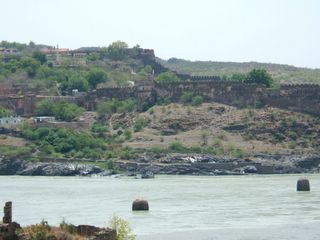I just got word that USAID's policies are shifting, and that they will be more closely "unified" with foreign policy. Specifically, the Administrator of USAID will now also be the Director of Foreign Assistance at the US State Department, and will have a coordination role in overseeing assistance budgets of other departments, including Department of Defense, among others.
Coordination of aid funds makes sense, and to a certain extent, aid has always been linked to politics. It's inevitable that
any funding that comes from the government is going to have a political element, and foreign aid is no exception.
However, my immediate reaction when I read about this new intensity, was "OH GOD, NO!!!" Here's why:
First, politics is short term. Development is long term. The two are not compatible. An example is Afghan opium production -- eradicating it is a key US priority (and rightly so). But this has resulted in the panicked throwing of aid money at the poppy region. Specifically, in my field, microcredit, microcredit organizations are being cajoled and threatened to get their butts down there and start making loans. The problem is that these regions are lawless combat zones, and as much as I love microcredit, how is microcredit going to really make a dent in poppy production? Sure, a few high-minded farmers might take loans and switch from their $2k an acre poppies to $35/acre wheat, but realistically...? Furthermore, NGO workers are not soldiers - they're easy marks and a number have already been picked off during this season of terrorism. The knee-jerk USAID push to drive NGOs into these combat zones just seems wrong-headed to me (and a waste of taxpayer funding). And meanwhile, funding gets diverted from programs which are starting to work.
Real development is thoughtful - it takes time, energy, and patience. Am I describing US foreign policy here? I don't think so, but feel free to disagree. I don't claim to have all the answers here - just lots of questions.
A second cause for alarm is that lots of people already assume I'm a CIA stooge, and this makes things more dangerous for me and every other aid worker. Any narrowing of the policy/aid gap is just going to increase the risk that NGOs will become targets.

